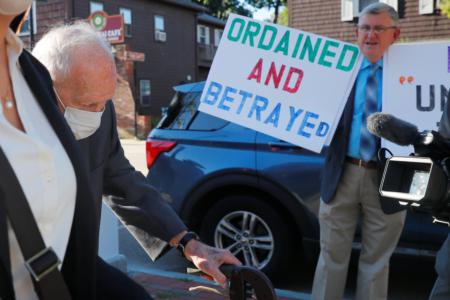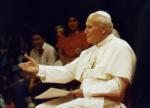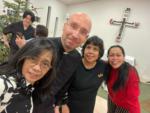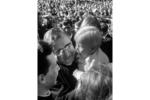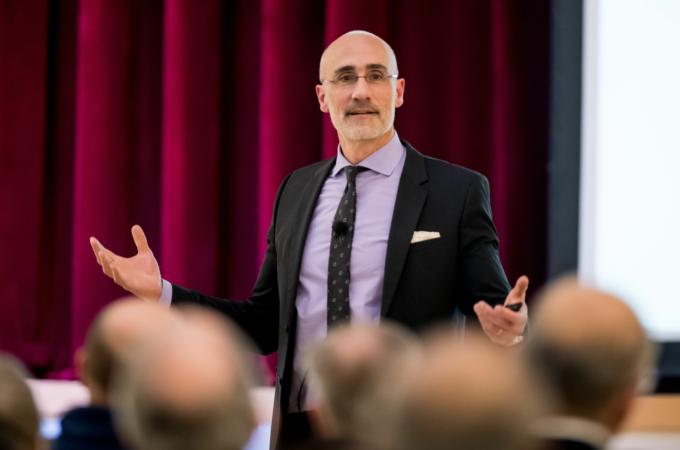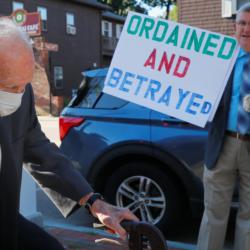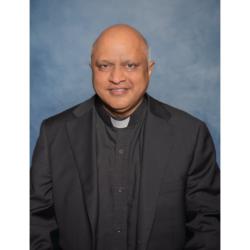Harvard social scientist gives talk on 'loving your enemy'
MEDFIELD -- Love is a choice, author and social scientist Arthur Brooks told attendees at a lecture hosted by the Montrose School in Medfield, Jan. 30. Brooks was speaking on the topic of his book, "Love Your Enemies: How Decent People Can Save America from the Culture of Contempt."
Brooks is a professor of the Practice of Public Leadership at Harvard Kennedy School and Arthur C. Patterson Faculty Fellow at the Harvard Business School. Before joining Harvard, he was the president of the American Enterprise Institute think tank for 10 years.
Montrose School faculty and staff read "Love Your Enemies" over the summer of 2019, and one English class read the book as an assignment. Before his speaking event, Brooks spent time with the students and had a roundtable conversation with them.
"It's great when you have a social scientist who can, with the data, really advance the conversation about loving your enemy by drawing on his professional expertise," Head of School Karen Bohlin said, speaking to The Pilot after Brooks' lecture.
The event was part of the speaker series hosted by the LifeCompass Institute for Character and Leadership. The speaker series is sponsored by the Elizabeth Schickel Foundation, a nonprofit founded in honor of a Montrose School student who died of brain cancer at age 15 in 2014. The event drew a few hundred people.
Brooks' presentation was peppered with anecdotes from history as well as his personal life as a husband and a father of three children.
Throughout his lecture, Brooks quoted the Bible, St. Thomas Aquinas, Shakespeare, and Edgar Allan Poe, but also referred to recent social science research, including that of his own contemporaries, to explain the importance of love in relation to societal problems.
"You need the love of the person sitting next to you. You need the love of God. There is no substitute. It is the most important thing," Brooks said.
He talked about the hormone oxytocin, which is produced when a person makes eye contact with a loved one.
"This is God's gift to you. This is God's way of bonding you to other people. This is the science of love. This is also the basis of our faith," Brooks said.
He said that society is experiencing a "loneliness epidemic," particularly, for the first time in history, among young people.
He referred to the work of Jean Twenge, a professor of psychology at San Diego State University, who believes the trend of loneliness stems from a deficit of romantic love. Statistics show that people in their 20s now date less, cohabit less, and are less likely to say they are in love than young people in past decades.
Twenge believes the reason for this is people's use of screens and social media, which are increasingly used "not as a complement to their relationships, not to set up their friendships and their events, but as a substitute," Brooks said.
However, he was not entirely convinced by Twenge's hypothesis, suspecting that the overuse of social media is a result of something else.
Jonathan Haidt, a social scientist who teaches at Stern School of Business at the University of New York, believes that society is experiencing a "fear epidemic." Although Haidt is an atheist, this theory resonated with Brooks because it aligns with Christian teaching that love and fear are opposites, as summed up by 1 John 4:18: "There is no fear in love. But perfect love drives out fear."
Haidt hypothesizes that young people today are more fearful because they have been less exposed to risk than previous generations, due to parents and educators' continual emphasis on safety.
Brooks said this creates an entrepreneurship problem, since "The ultimate act of entrepreneurship is risk with heart." Brooks called romantic love "an act of personal entrepreneurship."
In the second half of his presentation, Brooks talked about the topic of his book, how to love one's enemies.
"This is the hardest application of the most important thing," Brooks said.
He talked about the concept of "motive attribution asymmetry," a term coined by Adam Waytz, a professor at the Kellogg School of Management at Northwestern University.
Motive attribution asymmetry is a cognitive error experienced by parties in conflict, when one or both parties misinterpret the motivation of the other, believing that "I am motivated by love, but you are motivated by hatred." This, Brooks said, is the cause of every conflict in human history, and is usually the reason for divorce. Both sides cannot be right, and data shows that usually both sides are wrong.
Brooks said he was most struck by Waytz's claim that the motive attribution asymmetry between Democrats and Republicans in the United Stated is as high as that between Palestinians and Israelis.
The solution, Brooks said, is to move past contempt, which he differentiated from anger. He used the philosopher Arthur Schopenhauer's definition of contempt as "conviction of the worthlessness of another."
Brooks emphasized that love is not a feeling, but a choice. However, research shows that, like other emotions, if it is not felt, it can be acted out until it becomes genuine.
In closing, Brooks challenged his audience to do three things in the next week: talk about love; declare love to someone; and seek out contempt and answer it with love.
